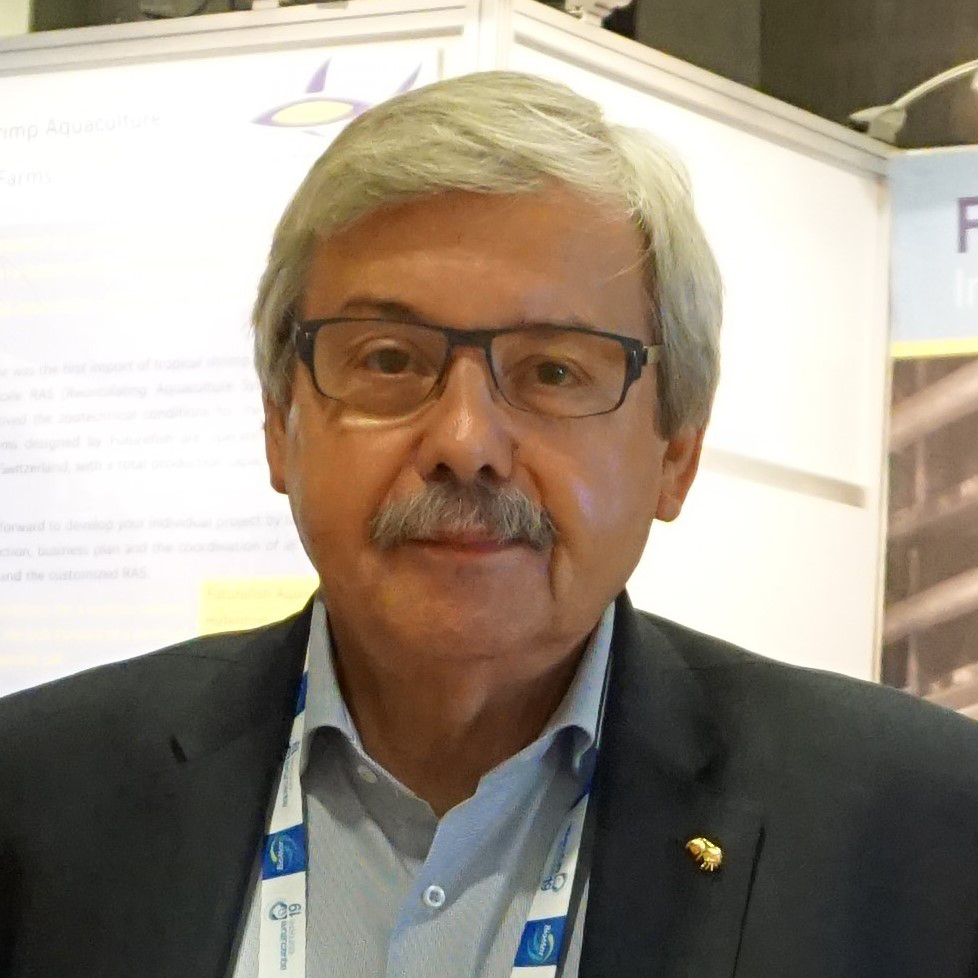Gerrit Quantz started his education in engineering at the Technical University Berlin and continued with biology at the Freie Universität Berlin After specializing in fisheries biology, marine zoology and oceanography at the Institute for Marine Research (Kiel University), he finished with a Diploma thesis in Aquaculture.
He was a pioneer way ahead of his time with the first marine hatchery, the first commercial marine RAS farm and the first shrimp farming pilot system in Germany.

From 1979-85
Gerrit worked in several R&D projects on marine bioproduction, mainly developing technologies for the first feeding of marine larvae and measurements of the bioenergetics of turbot larvae,Some of these works are documented in some 20 national and international publications.
In 1986
Together with 2 colleagues, Gerrit founded the company BUTT as a spin-off of the R&D projects and worked on commercial use of marine recirculation systems for larval and juvenile production. BUTT – later renamed into MariFarm – was the first commercial turbot hatchery in Germany.
On that basis Gerrit Quantz developed the concepts for a commercial recirculation farm for row-out of turbot and He and his business partners founded the company Ecomares GmbH & Co.KG at Buesum to actualise the concepts..
Based on his Gerrit’s lay-out a 100-ton marine fish farm using recirculation technology started operation in 2001 as the first commercial marine RAS farm in Germany and one of the first in Europe.
In 2003
The Ecomares and MariFarm activities were integrated into a US holding, the Ecomares Incorporated and Gerrit Quantz became Chief Technical Officer in the Ecomares Group. He developed several national and international farming projects, constantly improved the system design for recirculation systems on the basis of results of in-house research activities and established a pilot-scale RAS farm for indoor shrimp on-growing. Due to unbridgeable conflicts among the shareholders, the company came under administration in October 2007.
Since 2008
Gerrit Quantz works with his company Futurefish as consultant for a wide range of services around land-based aquaculture with RAS technology. Since then Futurefish has planned the R & D facilities for most of the national research institutes in Germany e.g. GMA Buesum, Fraunhofer Lübeck, Thuenen Institute Bremerhaven and the Institute for Hydrobiology and Fisheries Sciences at the University Hamburg. For the Efficient City Farming group, two Tilapia RAS farms were planned as part of Aquaponic systems in Berlin and Switzerland.
For more than 8 years, Gerrit has been rugularly working for the Apollo Aquaculture Group in Singapore. Together with the Apollo engineers a pilot-scale grouper farm and intensive RAS farms for fish and shrimp were built in multi-tier systems. Currently an 8-tier system is under construction that is based on Gerrit’s basic concepts.
Based on the operation of the pilot-scale shrimp farm at Strande, built in 2004, Gerrit planned and built 3 commercial indoor shrimp farms in Germany and Switzerland with a total capacity of 120 tons. The fresh shrimp are marketed successfully as Cara Royal, Good Gamba and Swiss Shrimp.
See also the references on this website:
Aquaculture Projects